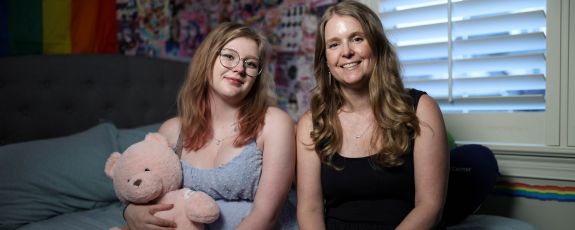
Close to the Heart
Expert care, strong medical insurance help Duke family in time of heart transplant crisis
Close to the Heart
Expert care, strong medical insurance help Duke family in time of heart transplant crisis
Audrey Gibson’s summer of 2024 was highlighted by an end-of-school party at Jordan Lake, driver’s education classes and a Green Day concert in Nashville.
In between were simpler joys like laps around her Apex neighborhood walking Zoey, her family’s energetic German Pinscher, and hours – maybe too many, she admits – on her phone, texting friends and swiping through Instagram videos.
Close to the Heart
Expert care, strong medical insurance help Duke family in time of heart transplant crisis
“I’m very thankful I get to do these things,” said Audrey, 16, a junior at Apex Friendship High School.
Audrey, the daughter of Anna Gibson, a Duke University Grants & Contracts Administrator, had known for several years that she was born with a flawed heart. Scarred and weak, her heart kept her alive for 15 years before it failed last summer, giving her a special appreciation for every little thing that comes with being 16.
“Sometimes my brain disconnects from it, like when I hear about all of the stuff that happened to me, I’m like ‘Oh yeah, that did happen,’” Audrey said. “It wasn’t a pleasant experience, but it happened. Instead of pitying myself, I have to be like, ‘I’m grateful to be here. I’m grateful for all of the doctors, supporters, friends and nurses who helped me.’”
In 2023, Duke set a national record with 161 heart transplants, including Audrey’s remarkable case. Her journey highlights the dedication and expertise of Duke’s doctors, nurses, and coordinators, as well as the unwavering support from her family, friends, and caregivers who bolstered her spirit during a long recovery.
And with Duke’s employee medical coverage, the Gibson family avoided mountainous medical expenses. The final cost of Audrey’s transplant and hospitalization was roughly $3.9 million. The itemized breakdown of charges covered 288 pages. But with the family’s Duke Select medical plan, they only had a $600 copay.
“After everything, our lives haven’t changed,” Audrey’s mother said. “Audrey just has a heart that works and a better quality of life. If you have the support you need, you can get through anything and move on.”
Open Enrollment for Duke’s medical, dental, and vision plans, as well as health and dependent care reimbursement accounts, runs from Oct. 14 to Oct. 25, underscoring the importance of having comprehensive benefits. Reviewing your medical plans ensures that you or your loved ones are prepared in a time of crisis.
Duke Health caregivers and robust Duke employee medical coverage help Audrey Gibson, daughter of Anna Gibson, a Duke University Grants & Contracts Administrator, in time of crisis.
“You can’t predict what happens in life, so when our employees and their families face stressful situations, we want to ensure that resources are in place to help lessen their burden,” said Antwan Lofton, Vice President for Duke Human Resources. “When we make decisions about our benefits, we try to think of every possible scenario that could impact our employees’ lives. They’re not just employees, they’re part of our family,”
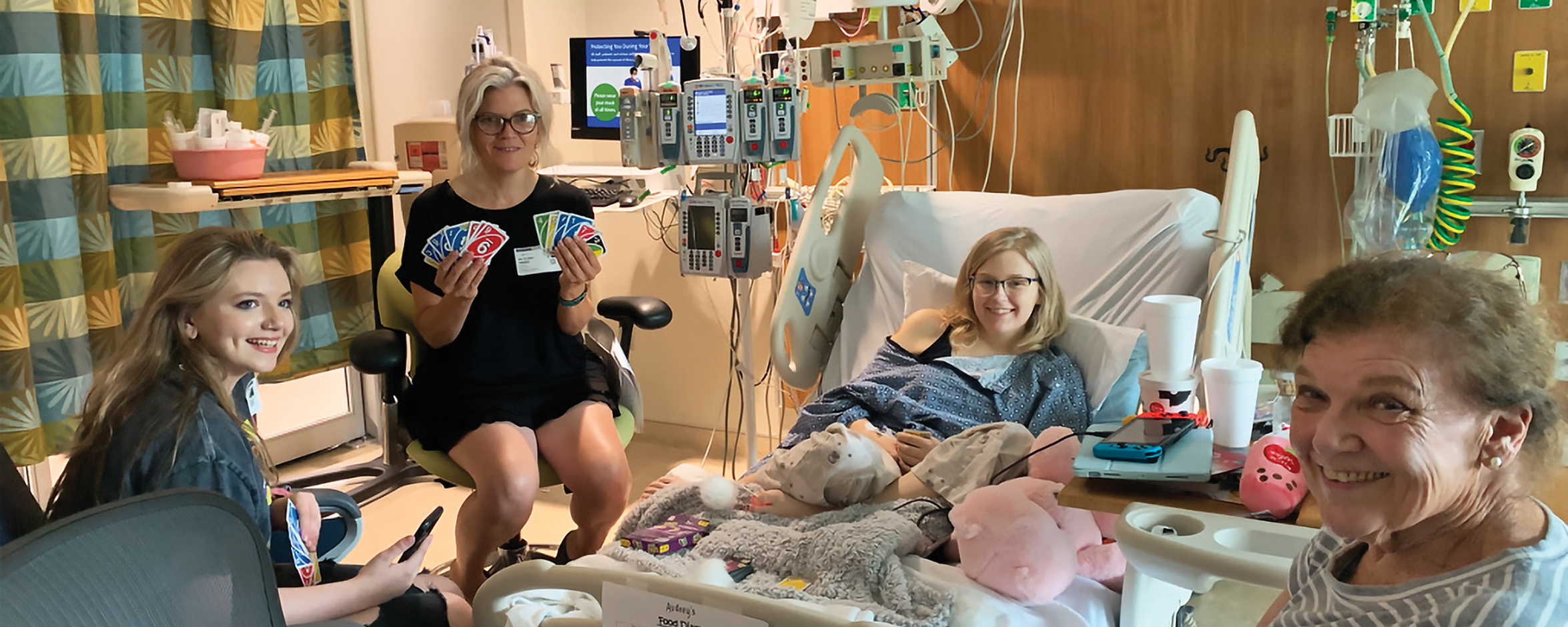
Fears Realized
On Monday, Aug. 7, 2023, Audrey’s heart didn’t have much left.
Since January, Audrey felt weak and her mind seemed cloudy. Things got worse over the summer. She fought what she thought was a stomach illness during a trip to the Outer Banks. Later, while shopping for supplies for marching band camp, she collapsed.
The fainting spells and nausea continued for weeks, leading to multiple hospital stays, with doctors unsure of the cause, until that Monday night. Lethargic and unable to keep anything in her stomach, Audrey’s parents rushed her to Duke University Hospital, where cardiologist Dr. Michael Carboni determined the cause.
Audrey’s heart, a source of worry for years, was in the advanced stages of failure.
In 2018, doctors in Seattle, where the Gibsons lived, diagnosed Audrey with hypertrophic cardiomyopathy (HCM). The condition makes the heart’s muscles thick and stiff, restricting pumping capacity. Since then, the Gibsons kept close watch on Audrey’s health.
For years, Anna ensured a portable defibrillator in a floral pink backpack went wherever Audrey did.
When the family moved to Apex, North Carolina, in 2019 for Audrey’s father’s job, they researched cardiologists and found that Duke’s doctors, and medical benefits for employees, were considered among the nation’s best.
Anna, who got Audrey to Duke doctors in 2019, joined Duke’s staff in 2022.
“I needed to work at Duke because the benefits were so much better,” she said. “I needed comprehensive benefits for Audrey. It was my hope when we moved here to get a job at Duke.”
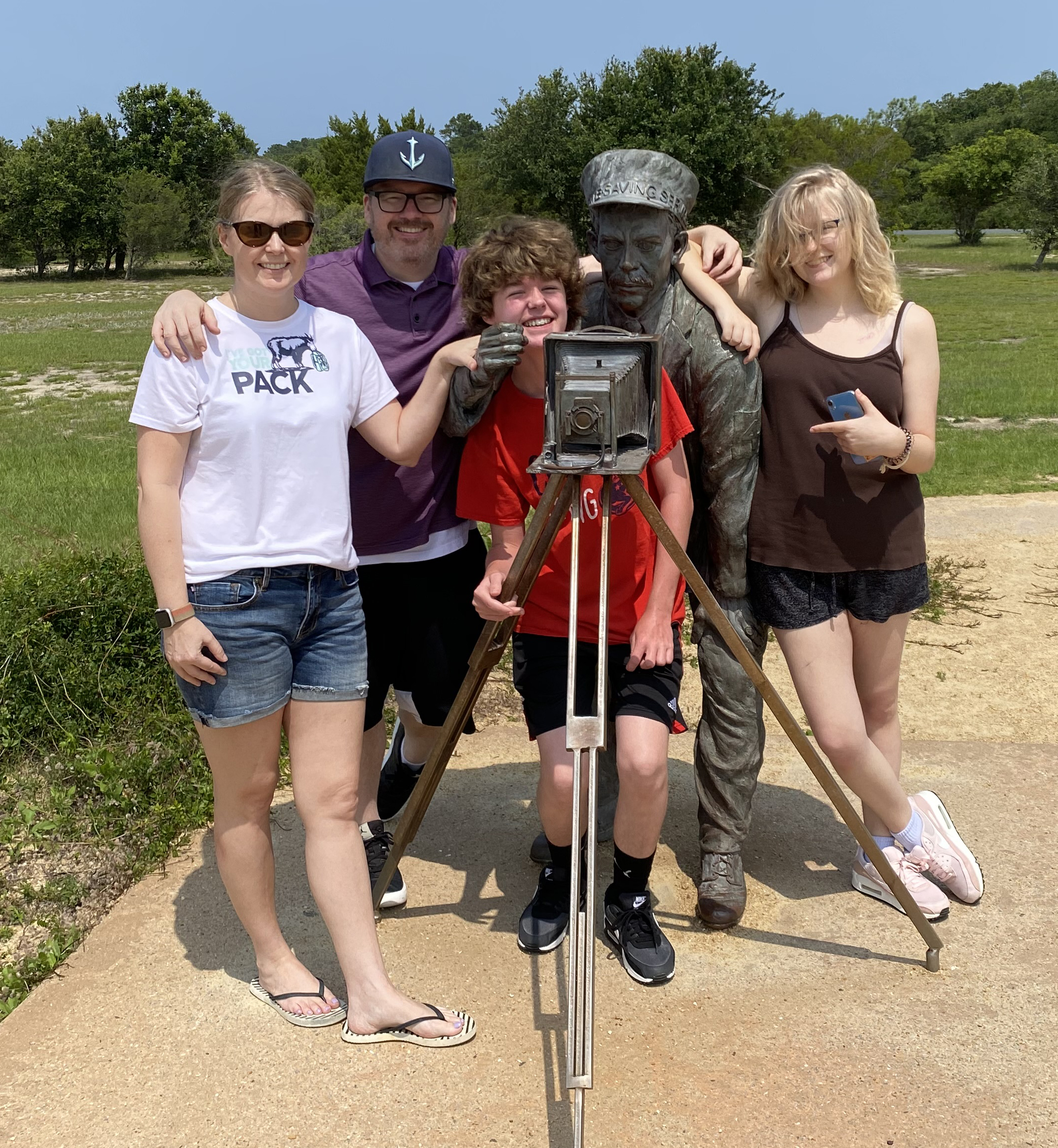
Once in Duke’s care, genetic testing revealed Audrey had Danon disease, a rare condition that causes heart muscles to break down, requiring many patients to get heart transplants. She had an internal defibrillator implanted in her chest, helping her maintain a regular heart rate. With Audrey improving, Anna could leave the backpack with the defibrillator at home. Audrey’s heart, it seemed, could last a while longer.
But last August, Carboni explained that Audrey’s heart had given all it could. She needed a transplant quickly.
“We were not prepared for it,” said Audrey’s father, Arian Gibson. “Our mentality was, ‘Her heart’s not great, but it’s still functioning, right?’ Well, now it wasn’t.”
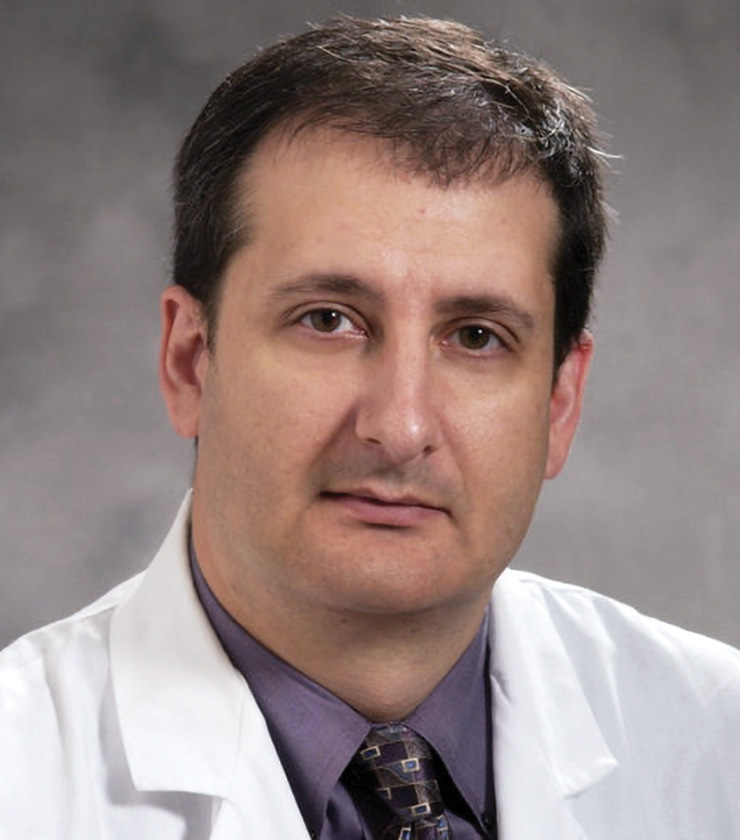
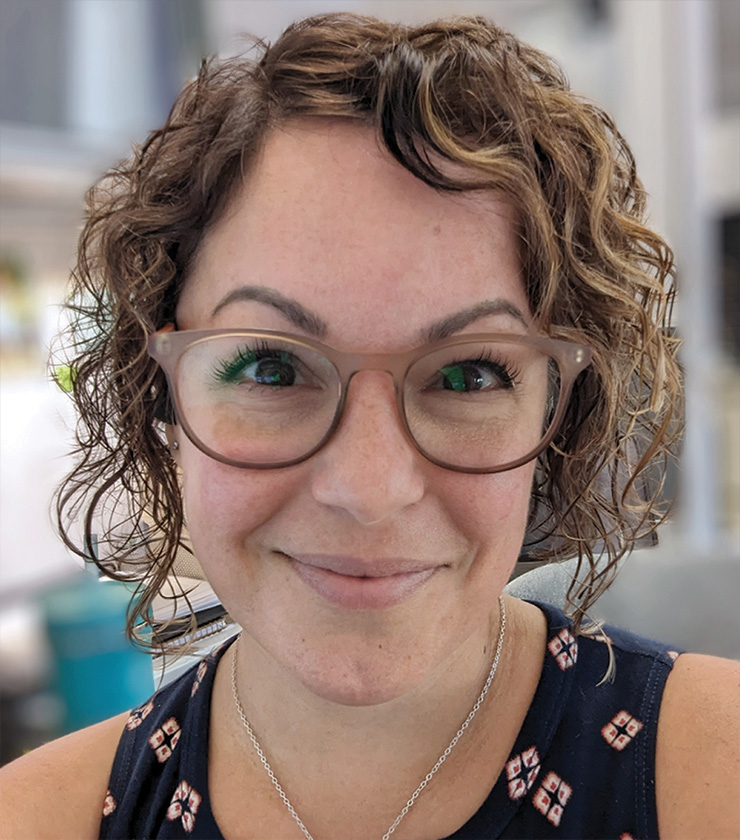
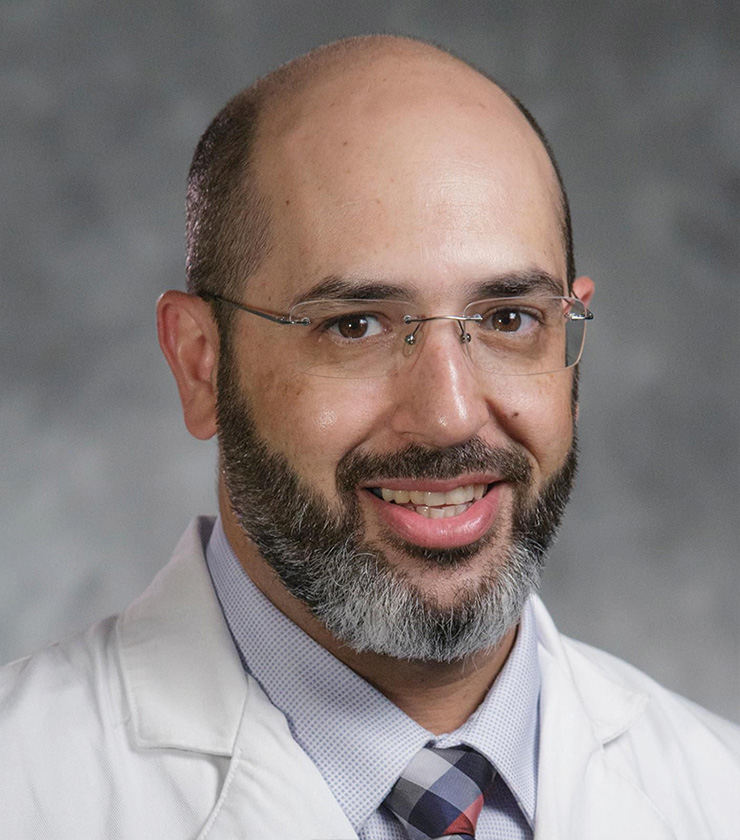
Cardiologist Dr. Michael Carboni, left; Pediatric Heart Transplant Coordinator Kelly Iannello, center; and Pediatric Heart Surgeon Dr. Ziv Beckerman, right, played key roles in Audrey Gibson's heart transplant.
The Right Heart
Once hospitalized, Audrey’s top priority was buying enough time to find a new heart. Duke doctors tried 26 medications and three surgeries to attach pumping devices to keep her heart working. But two weeks in, hoses and pumps at Audrey’s bedside did the work of her heart and lungs.
Her parents alternated nights at Duke University Hospital. One parent kept vigil beside Audrey while the other made the drive home to Apex for a brief respite. The drive home was one that Audrey’s parents were convinced they would make again with her.
“Losing Audrey was just never an option. I knew a heart was coming,” Anna said.
Pediatric Heart Transplant Coordinator Kelly Iannello managed the quest for Audrey’s new heart. Given her vulnerable state, Audrey had priority to claim any donor heart that was deemed a potential match. But there was no guarantee of a quick match.
When donor hearts become available, a liaison service contacts members of Duke’s transplant team with information about their location, size and the donor’s age and health history. Duke doctors must quickly determine if a heart is a good match. If not, the heart is declined.
“All I can tell patients is that, when their heart comes, it will be the right heart for them,” Iannello said.
On the afternoon of Wednesday, Aug. 23 – nearly two weeks after Audrey was listed in the recipient registry – Dr. Carboni walked into Audrey’s hospital room wearing a sly grin.
“What are you guys doing this weekend?” he asked.
Anna didn’t need to hear anything else and excitedly wrapped Dr. Carboni in a hug. A matching heart had been found.
After her heart transplant, Audrey Gibson leaned on Duke University Hospital’s Child and Adolescent Life team, a group of caregivers who tend to young patients’ mental and emotional well-being.
Two days later, a Duke surgical resident boarded a private jet at Raleigh-Durham International Airport and zoomed into the clouds. A few hours later, the jet returned carrying Audrey’s new heart.
At that moment, Duke Pediatric Heart Surgeon Dr. Ziv Beckerman was prepping Audrey for the transplant. Over the next several hours, Beckerman removed Audrey’s old heart, which was still laden with metal pumps and tubes, and connected her arteries to her new heart.
“The heart we got her was terrific,” Beckerman said. “It got back to work immediately.”
In between phone updates from an operating room nurse, Audrey’s parents offered silent prayers at Duke University Chapel and played cards – specifically, hearts – in the hospital.
Sometime after midnight on Saturday, Aug. 26, Dr. Beckerman told Audrey’s parents that the transplant was successful and that the parents could go home.
Exhausted, the Gibsons traveled empty roads illuminated by a nearly full moon. Nearing their neighborhood, they glimpsed a cloud through the treetops. Illuminated by moonlight, it was shaped like a heart.
“We had to check with each other to make sure we both saw it,” Audrey’s father said. “And then we started bawling.”
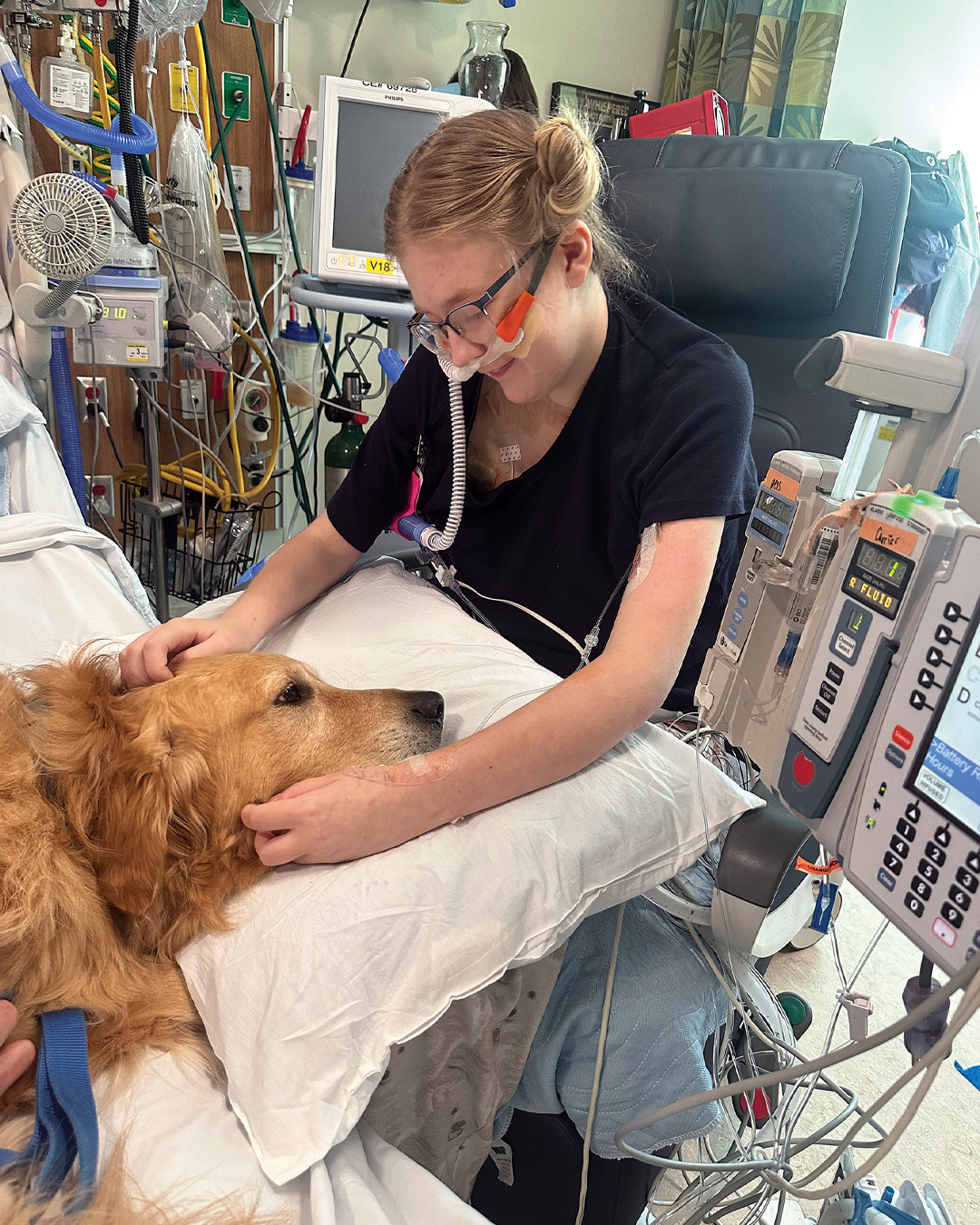
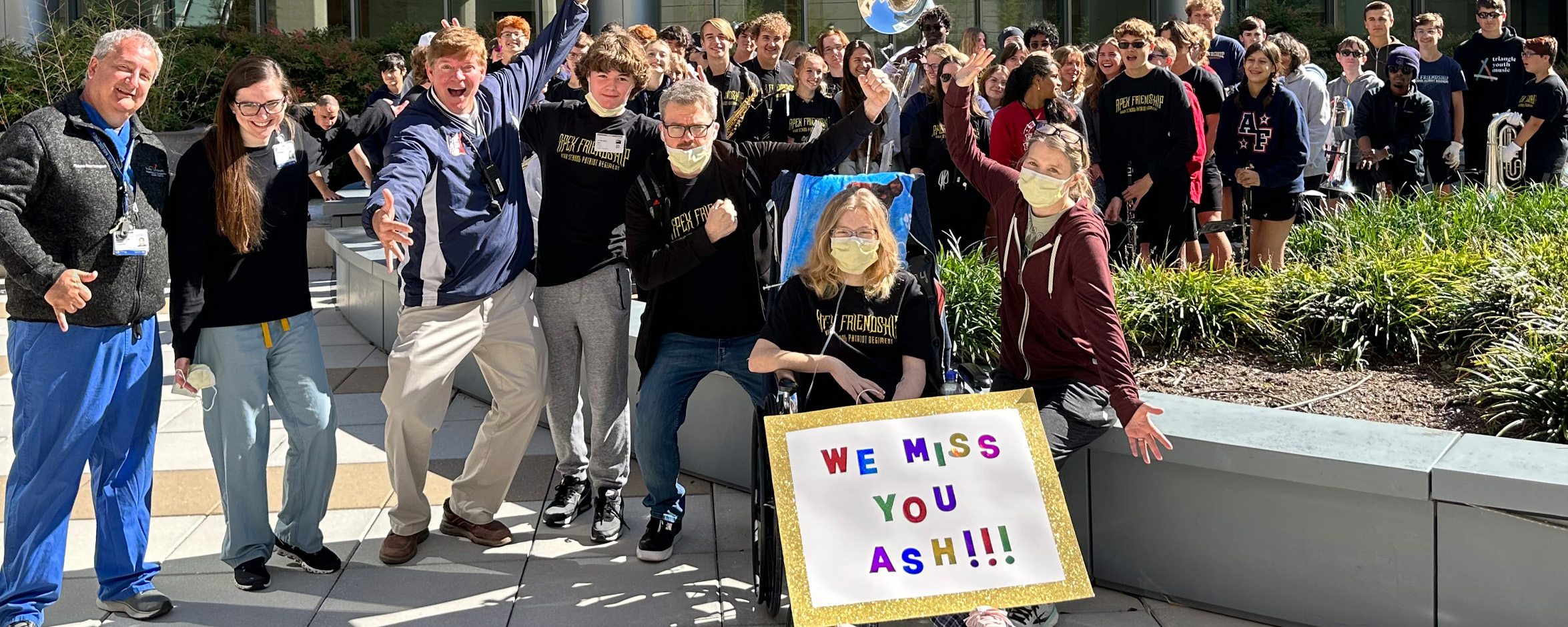
The Road Back
Audrey had her new heart. She also had a long way to go.
It took her two days to wake up and nearly a month for the mental fog from nearly three weeks of sedation to clear. Audrey lost over 30 pounds and needed tubes to eat, breathe and drain fluid from her chest. Her mother said Audrey was like a “frail little bird.”
To keep her body from rejecting her new heart, Audrey took medication that essentially shut off her immune system, leading to a series of infections, pancreatitis and pneumonia. The complications kept her in the Pediatric Cardiac Intensive Care Unit on Duke University Hospital Central Tower’s third floor for nearly five months.
Audrey’s parents remained fixtures in her hospital rooms.
Her mother worked out a reduced schedule with her manager, Alison Hriciga on the Campus Grant Contract Management Team, so she could be there for Audrey.
“We needed to help her hold it together,” Hriciga said.
Audrey had her spirits lifted when her younger brother, Alex Gibson, recorded a video of his band covering “Say it Ain’t So” by Weezer, Audrey’s favorite band. And in October, Apex Friendship High School’s marching band, the Patriot Regiment, visited the hospital to play a brief outdoor concert for Audrey, who watched from a wheelchair.
Audrey also leaned on Duke University Hospital’s Child and Adolescent Life team, a group of caregivers who tend to young patients’ mental and emotional well-being.
Child Life Specialist Rylee Neal bonded with Audrey while painting her nails – Audrey favored shades of aqua, magenta and yellow – or finding costume supplies for the unit’s Halloween celebration – Audrey was Velma from Scooby-Doo.
When frustrated with hospital life, Neal had Audrey write her feelings on paper and then helped her toss water balloons at each hand-written annoyance in a hospital courtyard.
“Seeing Audrey was the first thing on my to-do list because, selfishly, I wanted to spend time with her, but also, I knew she needed support,” Neal said.
Audrey enjoyed visits from music therapists, who helped her belt out songs on her baritone horn, and Cassie, a therapy dog that curled up in bed. She befriended fellow patients, especially a 14-year-old heart transplant recipient who is now one of her closest friends. Audrey recalls the two of them sitting in the unit’s lobby, sharing conversations about what they missed most about their lives back home.
“We didn’t talk about the future,” Audrey said. “We didn’t think that far. We were like, if we talk about it, we might jinx it.”
On Dec. 14, doctors deemed Audrey well enough to leave. That day, she joined her parents on their now-familiar drive back to Apex. For the next few weeks, Audrey struggled to walk upstairs and moved deliberately, a habit born of five months spent connected to machines. But she was thrilled to be home.
By February 2024, Audrey’s post-transplant quarantine ended. She returned to school and friends could once again visit the Gibson home, filling it with happy voices and a sense of normalcy.

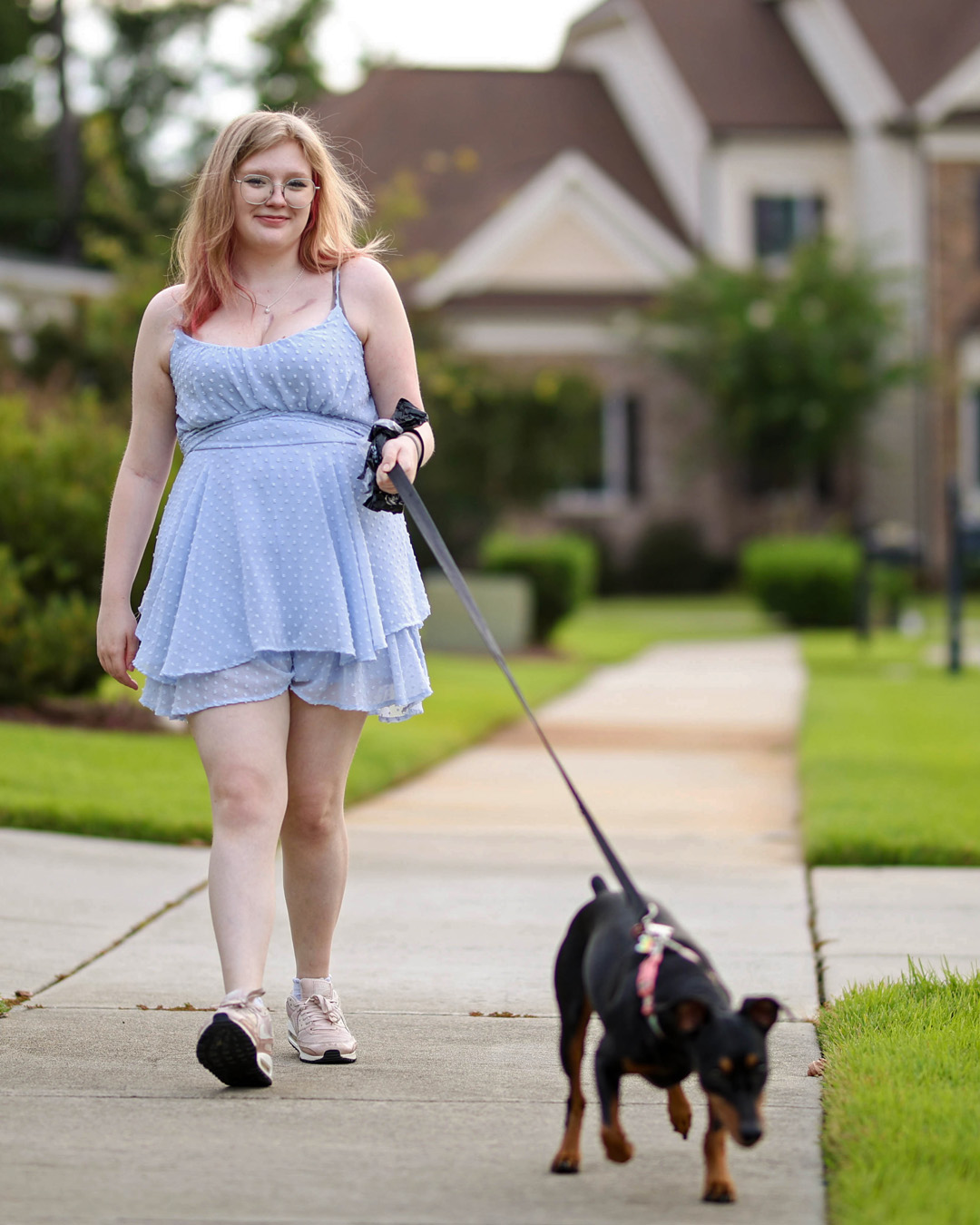
Audrey still checks in with Dr. Carboni to see how her heart is functioning. But with the help of Duke’s caregivers and benefits, the crisis that rocked the Gibson family is just one chapter in a story that has many more to go.
“Everybody has their thing that happened to them. This is mine,” Audrey said. “It shaped who I am, but it’s not all of me.”
Medical Benefits Open Enrollment 2025
Open enrollment for medical benefits and reimbursement accounts effective January 1, 2025, begins Oct. 14 and ends Oct. 25.
Send story ideas, shout-outs and photographs through our story idea form or write working@duke.edu.
Follow Working@Duke on X (Twitter), Facebook and Instagram and subscribe on YouTube.